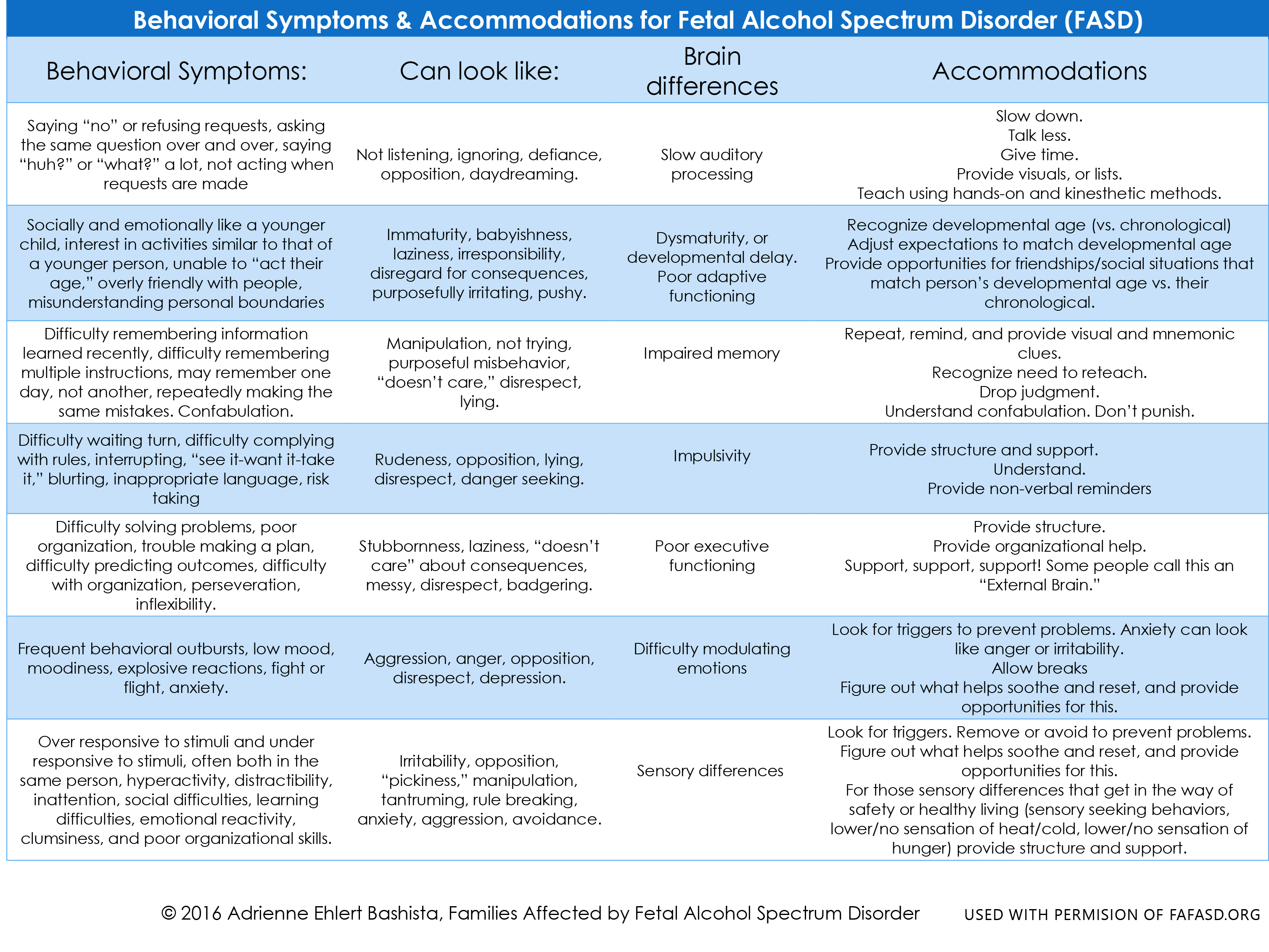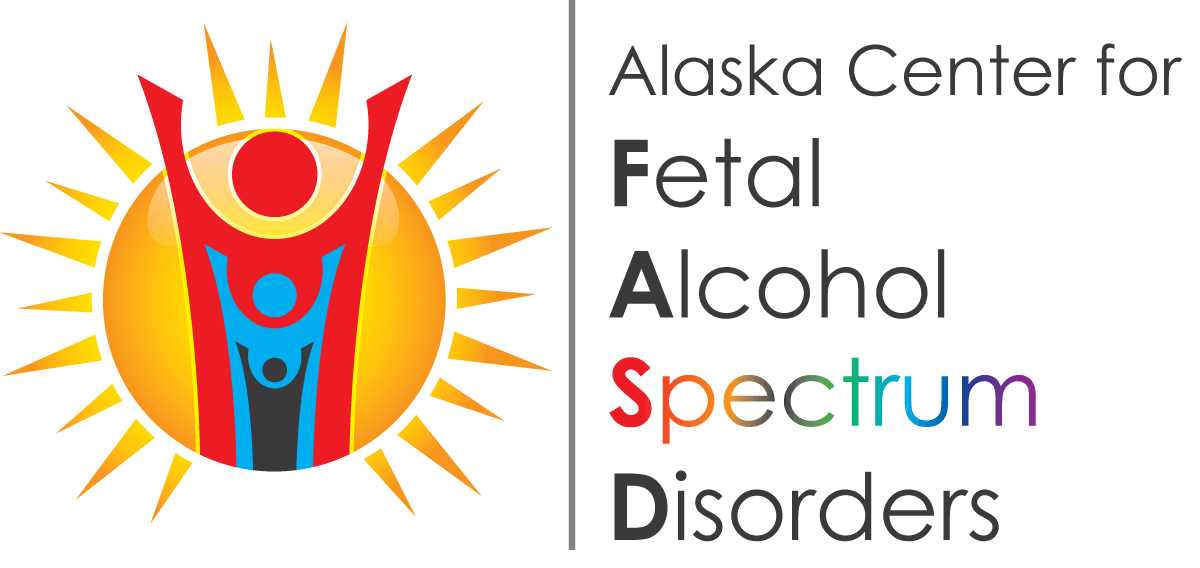Education

Although early diagnosis is critical for long term outcomes, pervasive stigma and limited access to diagnosis can impact pursuit of a diagnosis. Frankly, the diagnosis may be less important if the educator can identify the students’ challenge areas and provide the necessary supports. Just like the archaic notion that a crying baby shouldn’t be comforted or the baby will be “spoiled”, students with an FASD may be presenting difficult behaviors in the classroom but this is a cry for help and for the educator to determine their unmet needs. It is not nurturing dependency to address brain-based learning needs. It is important to remember that students with an FASD may function at a level that is half their chronological age in one or more areas. Therefore, the educators’ expectations need to be adjusted to match the students’ developmental level. Teachers need to drop the “shoulds”- what a student should be able to do and embrace the notion that a student “needs” specific supports and accommodations to function successfully. Educators must be willing to accept a student's strengths and weaknesses, and personally get to know the student who struggles. "First do no harm" must be an overriding practice. A respectful tone and behavior, willingness to work with a student to problem solve and create a plan for success, and regular ongoing support, can make all the difference for someone with an FASD.
For additional resources and websites go to FASD Basics-Resources and Research: Education on this website.
Families Affected by FASD- online family support & resources organization.
